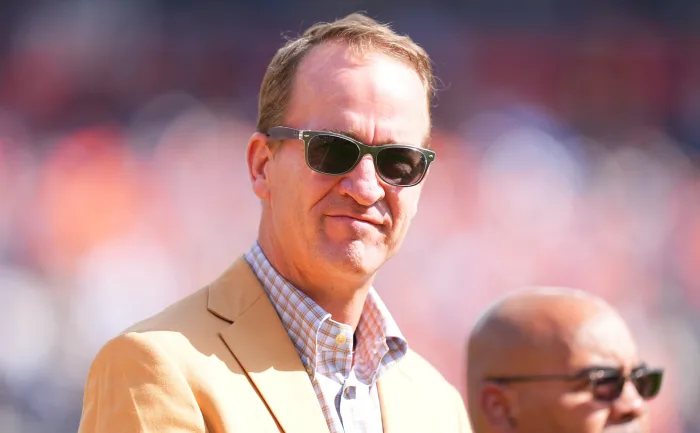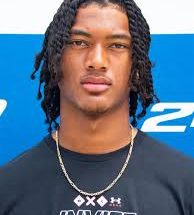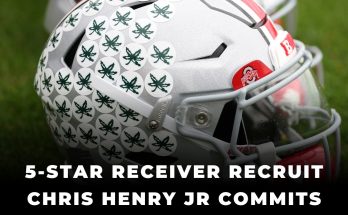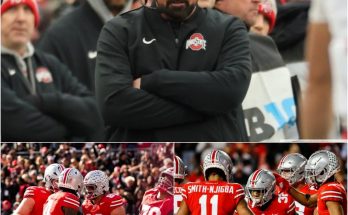Tennessee Vols Legend Peyton Manning Annoyed by New Quarterback Trend
Peyton Manning, the legendary quarterback who etched his name into the annals of football history both at the University of Tennessee and in the NFL, is no stranger to evolving trends in the game. Known for his unparalleled football IQ, methodical preparation, and surgical precision on the field, Manning has always been a staunch advocate for the fundamentals of the quarterback position. However, in a recent public appearance, the Hall of Famer expressed his discontent with a growing trend among modern quarterbacks—a trend he believes is undermining the artistry and discipline of the position.
The trend in question? The increasing reliance on raw athleticism over cerebral decision-making and technical precision.
The Rise of the Dual-Threat Quarterback
Over the past decade, the NFL and college football have witnessed a paradigm shift in the quarterback position. Gone are the days when quarterbacks were primarily pocket passers who relied on their arm strength and mental acuity to succeed. Today, the rise of dual-threat quarterbacks—players who can both throw the ball effectively and pose a significant threat as runners—has transformed how offenses operate. From Lamar Jackson and Jalen Hurts in the NFL to a new wave of collegiate stars, mobility and improvisation have become essential traits for quarterbacks.
While Manning acknowledges the undeniable success of these players, he is concerned that the emphasis on athleticism is overshadowing the nuances of quarterback play that he holds dear.
“The quarterback position is about more than just being able to run a 4.4 [40-yard dash] or evade a sack,” Manning said during a recent interview. “It’s about understanding the defense, calling the right audibles, and delivering the ball accurately under pressure. When you rely too much on athletic ability, you risk losing sight of what makes the position so special.”
Peyton Manning’s Traditional Approach
Manning’s career serves as a testament to his philosophy. At Tennessee, he shattered records and elevated the Volunteers to national prominence, becoming one of the most celebrated players in college football history. In the NFL, his cerebral approach to the game revolutionized how quarterbacks prepare and execute on game day.
Manning was a master of pre-snap reads, often changing plays at the line of scrimmage based on his assessment of the defense. His ability to dissect defenses and exploit their weaknesses was second to none. And while he wasn’t known for his mobility—his infamous “5.28-second” 40-yard dash at the NFL Combine remains a running joke—he more than compensated with his mental acuity and precision passing.
“Peyton’s brain was his biggest asset,” said his former coach Tony Dungy. “He didn’t need to run because he was always two steps ahead of the defense.”
The Current Quarterback Landscape
Today’s quarterbacks operate in a vastly different environment than Manning did during his prime. Offensive schemes have evolved to accommodate more mobile quarterbacks, incorporating designed quarterback runs and read-option plays that leverage their athleticism. This shift has also been driven by changes in defensive strategies, as faster and more versatile defenders have made traditional pocket passing more challenging.
While Manning recognizes the value of adaptation, he fears that the emphasis on athleticism could lead to a devaluation of core quarterback skills such as accuracy, timing, and decision-making.
“The best quarterbacks in history—guys like Joe Montana, Dan Marino, and Tom Brady—weren’t running around making highlight-reel plays with their legs,” Manning said. “They dominated because they mastered the mental and technical aspects of the game. That’s what I’d like to see more of in today’s young quarterbacks.”
The Double-Edged Sword of Mobility
Manning’s critique of the modern quarterback trend is not without nuance. He acknowledges that mobility can be a valuable asset when used strategically. In fact, he has praised players like Patrick Mahomes and Josh Allen for their ability to strike a balance between athleticism and traditional quarterbacking skills.
“Patrick Mahomes is a great example of a guy who can do it all,” Manning said. “He’s athletic, but he’s also a student of the game. He understands when to stay in the pocket and when to improvise. That’s the kind of balance I’m talking about.”
However, Manning is concerned that not all young quarterbacks are striking this balance. He points to instances where players rely too heavily on their legs to escape pressure or extend plays, often at the expense of their development as passers.
“It’s tempting to lean on your athletic ability, especially when you’re young and can outrun most defenders,” Manning said. “But eventually, defenses catch up, and you’ll need to rely on your arm and your brain to win games.”
Manning’s Advice to Aspiring Quarterbacks
As someone who has mentored numerous young quarterbacks through his Peyton Manning Passing Academy and other initiatives, Manning has some advice for the next generation of players:
- Prioritize Film Study: “There’s no substitute for preparation. The more you understand the game, the better you’ll perform under pressure.”
- Master the Fundamentals: “Footwork, mechanics, and accuracy are non-negotiable. These are the building blocks of a successful quarterback.”
- Develop Pocket Presence: “Learn to navigate the pocket and keep your eyes downfield. Escaping the pocket should be a last resort, not a first instinct.”
- Balance Athleticism with Discipline: “If you’re a mobile quarterback, use your legs strategically, but don’t let them define your game. Strive to be a complete player.”
The Future of the Position
Despite his concerns, Manning remains optimistic about the future of the quarterback position. He believes that the best players will always find a way to succeed, regardless of trends or playing styles.
“Football is a game of evolution,” Manning said. “Every generation brings something new to the table. My hope is that we can find a way to blend the old-school fundamentals with the exciting new elements we’re seeing today.”
As the game continues to evolve, Manning’s voice remains an important one in the conversation about quarterback development. His insights serve as a reminder that while athleticism can dazzle, it is the mastery of the mental and technical aspects of the game that truly defines greatness.
For young quarterbacks aspiring to follow in Manning’s footsteps, the message is clear: Embrace innovation, but never lose sight of the fundamentals that make the quarterback position the most challenging and rewarding in all of sports.



